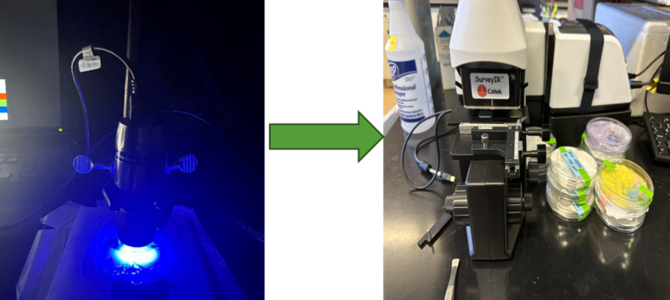Lucas, D. Petty, S., Keen, O., et al. (2017)
Kennedy Neth, N. L., Carlin, C.M. and Keen, O.S. (2017)
Kennedy Neth, N. L., Carlin, C.M. and Keen, O.S. (2017) Doxycycline transformation and emergence of antibacterially active products during water disinfection with chlorine. Environmental Science: Water Research and Technology 3, 1086-1094
Jenny Ngueyn
Jenny received her MS degree in 2022. She completed her thesis on “The impact of redox conditions on OH• scavenging in surface water matrix and implications for testing of scavenging”.
Tori Hoffman
Tori is a PhD student with a focus on microplastics in landfill leachate and anaerobic reactor digestate. Her research is supported by Environmental Research and Education Foundation.

John Kingsley
John is pursuing his PhD degree in Civil Engineering with a focus on improving the operation of advanced oxidation processes. His current work is focused on quenching residual hydrogen peroxide, and his research is supported by US Department of Interior Bureau of Reclamation.
Prior to joining our program, John earned an MS in Analytical Chemistry from Michael Okpara University in Nigeria, focusing his research on the biodisinfection and coagulant properties of plant extracts for water treatment, and an MS from Poznan University of Life Sciences, Poland, where he completed a thesis on biomonitoring pesticides in freshwater ecosystems using mussels. In his professional career he served as a lecturer at Rhema University in Aba, Nigeria.

Chideraa Ndubuisi
Chideraa’s is pursuing a PhD in Infrastructure and Environmental Systems with a particular interest in the intersection of environmental and human health. His work focuses on the fate of microplastics in wastewater solids. He received a student grant from NC Water Resources Research Institute for his project on assessing the difference in microplastic content of primary and secondary solids.
He is pursuing a Master’s degree in Public Health simultaneously with his PhD degree.
Kelsey Sikon
Kelsey is working on a Master’s thesis and her research was supported by Charlotte Water. The goals of the project are to determine the effectiveness of wastewater treatment plants in removing microplastics from the liquid stream and to assess whether commercial laundering facilities are major contributors of microplastics in wastewater influent, in particular fibers.

Fateme Barancheshme
Fateme graduated with her PhD in Civil Engineering in 2020. Her dissertation focused on treatment of algal toxins in drinking water with UV-based advanced oxidation processes. Her research was funded by NC Water Resources Research Institute’s Urban Water Consortium.
She is currently an engineer with Thermo Scientific.
Publications:

Microplastics in wastewater
We have been working with multiple wastewater treatment plants to elucidate the sources and fate of microplastics in wastewater treatment, with the recent focus on microplastics in biosolids.
